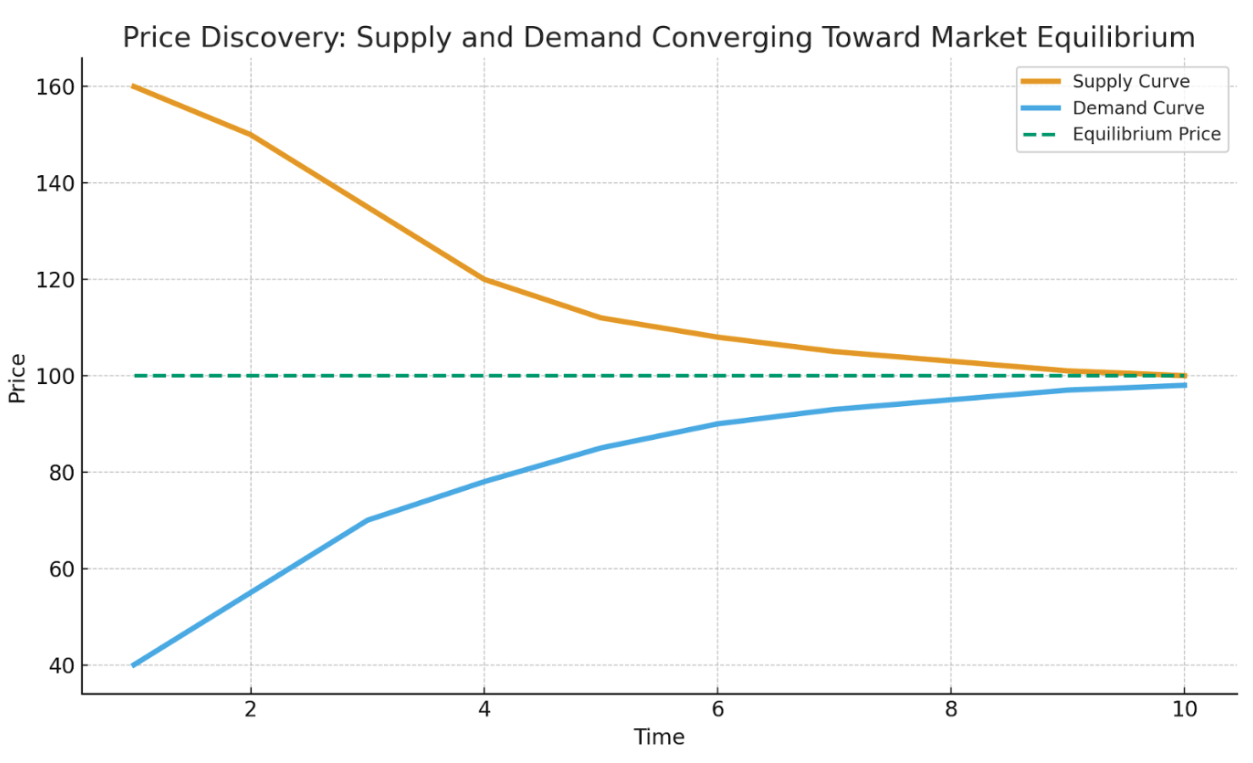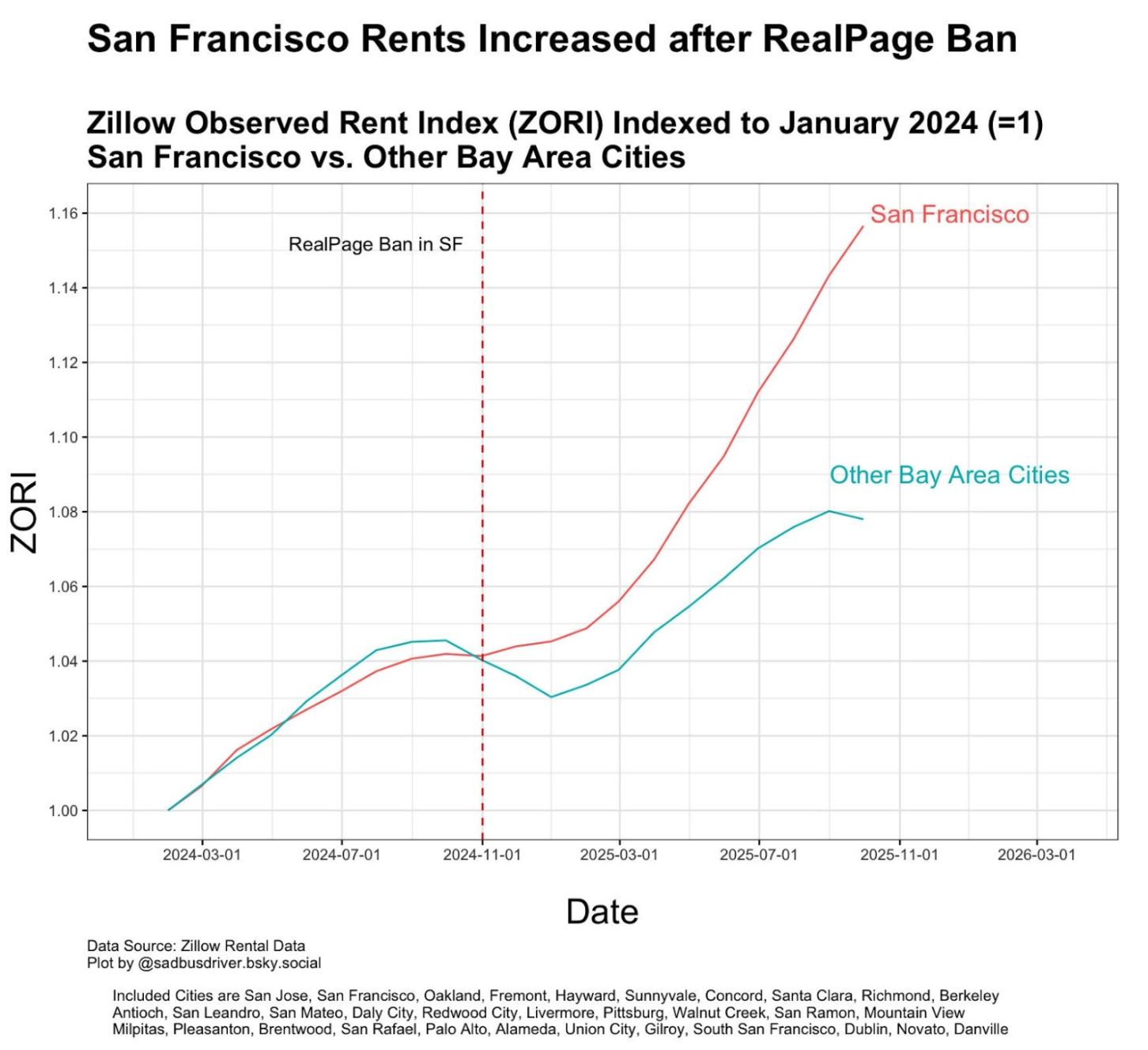The City of Portland once again attempts to defy both logic and the laws of economics. It has passed an ordinance (30.01.088) that forbids housing providers from participating in the process of price discovery.
All businesses use price discovery to figure out what to charge for their products or services. If their price is too high, no one buys, if their price is too low, the business can’t pay its bills and eventually closes. Time is of the essence, so the faster price equilibrium is reached, the better for the business and its customers.
For this reason, housing providers routinely ask “what will my property rent for?” This question is both critical and a necessary for survival.

Unfortunately for Portland’s housing providers, the City Council doesn’t like this question, but it dislikes how it’s answered even more, and that is with data.
Some data is public, some data is private. A practice common among all industries. The city banned the use of private data.
The City’s Theory
The City Council believes that when housing providers share data about what their buildings rent for, either directly, or through third party tools such as Realpage, Yardi, or CoStar, that this practice of data aggregation is at best, unfair, and at worst, price fixing.
Since price fixing is illegal under federal anti-trust legislation, the Councilors felt it was necessary to ban housing providers from sharing their collective data in any fashion.
While the Council has claimed data sharing is pricing fixing, the conduct of housing providers doesn’t support this. Pricing fixing involves;
Agreeing to raise prices
Agreeing to eliminate discounts
Agreeing to use a standard formula
Agreement on price differentials
There is no evidence of price collusion.
Despite this, the Council has argued that data, when aided by artificial intelligence, data sharing has the same effect as blatant collusion.
They believe that the current model increases the rate, and frequency of rent increases and potentially could lead to discrimination in housing, stating “...has the potential to quickly devolve into AI models favoring certain neighborhoods, demographics, or tenant profiles, even with the use of aggregated, anonymized data.”
The Council points to a recent federal lawsuit against America’s largest landlord, Greystar alleging that its use of rent-setting algorithms have driven up housing costs. As a result of this lawsuit by the DOJ, Greystar has agreed to settle the lawsuit and no longer use its current software model to price its rentals(Greystar has not admitted any fault for guilt as part of the settlement).
The Government’s “Solution”
With the support of Councilors Angelita Morillo, Mitch Green, and Council Vice President Tiffany Koyama Lane, the City Council introduced Ordinance 30.01.088 which states that;
“no person or entity shall engage in price fixing or use any “service, software, or system” that engages in price fixing”.
Pricing fixing is defined by the ordinance as;
Agreements (verbal, written or inferred from conduct) among two or more persons or entities to set, raise, lower, maintain or stabilize rental prices, fees or occupancy levels for dwelling units with different beneficial owners.
Establishing rental prices, lease terms, or occupancy levels of a dwelling unit, using a system, software, process, algorithm, model training, runtime operation or similar method involving information about historical, current, or anticipated rental prices, price changes, supply, occupancy rates, lease terms or renewal dates of dwelling units with different beneficial owners.
The ordinance goes on to include large penalties (fines up to $1,000.00 per violation) for housing providers and opens the door to long term liability by creating a statute of limitations of 5 years (4 years longer than typical landlord-tenant disputes).
While 8 of 10 Councillors supported the ordinance, 2 did not.
Dan Ryan raised concerns, stating "the AI algorithm legislation has been created for local government by a national organization, Local Progress, who develops progressive policy legislation to be adopted by cities and counties”. In short, this is not a homegrown idea, but part of a larger policy agenda by outsiders.
He further argued "we know the way to less expensive housing, both rental and privately owned, is by increasing our housing production of all kinds. That is my focus."
Mr. Ryan echos what housing providers have been staying for the past decade. The best way to address affordability is with supply. The city needs to inspire development and investment, not demonize it.
Why this Ordinance is Problematic
This approach is flawed in many ways, both in its construction, its premise, and in how it will impact Portland.
The state of Oregon already looked at passing this sort of legislation in the spring of 2025 under Senate Bill 722, and concluded it was a bad idea.
Oregon is in the midst of a housing crisis and is currently ranked 80 out of 81 cities to invest according to a study ordered by the Urban Land Institute (ULI)

This bill not only makes it harder for landlords to operate their properties efficiently, it exposes them to more cost and more liability. This new ordinance is just one more example of why capital allocators shouldn’t invest in Portland.
New Data is Damning
What’s most alarming about this is that recent data suggests that this kind of ban is having the opposite effect on renters. It isn’t causing rents to fall or grow at a slower rate, it's actually accelerating the rate of increase according to data from Zillow. .













